Black Sheep and Kissing Cousins
21/12/14 19:57
Elizabeth Stone, Black Sheep and Kissing Cousins: How Our Family Stories Shape Us (New Brunswick: Transaction Publishers, 2008)
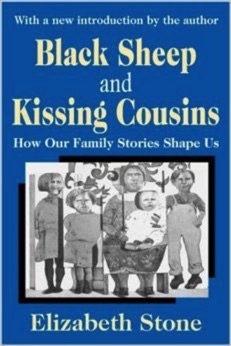
Understanding families has a lot of different practical application from human resources management, to pastoral care to telling stories. Understanding how certain stories fit into the context of bigger stories is a boon to all storytellers. The book fits well into the lectures of the class to provide a continuity of understanding.
Hot Dogs & Hamburgers
21/12/14 16:51
Rob Schindler, Hot Dogs & Hamburgers: Unlocking Life’s Potential by Inspiring Literacy at Any Age (Austin, TX: River Grove Books, 2012)
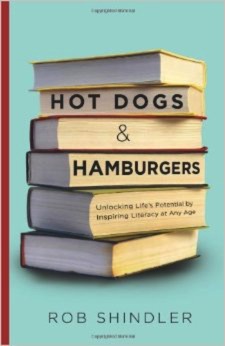
Briefly his story goes like this: Frustrated with his son’s inability to read and his own inability to teach his son how to read, Shindler becomes a volunteer tutor with the Chicago Literacy Council. He not only learns the skills he needs to engage his son in reading and become a better father, he also makes lasting and life-long connections with the remarkable people who become his students. His perception of the kind of people who are unable to read is forever changed and his family is renewed in the process.
It is a delightful story with a powerful ending. We have had two different groups in our congregation discussing the book and more than a quarter of our congregation have now read the story. That’s pretty remarkable for us.
I have a close friend who did not learn to read until he was 30 years old, so I have a sense of the wonderful contributions that can be made by those who cannot read. I also know a bit of the frustration and heartache that comes from not being able to read and thinking of oneself as not being intelligent. And I have witnessed the transformation that occurs when the former teaching disability is overcome and the person learns to read.
It is a great choice for a one read and a book that is easy to recommend.
Poems that Make Grown Men Cry
21/12/14 16:40
Anthony and Ben Holden, eds, Poems that Make Grown Men Cry: 100 Men on the Words that Move Them (New York: Simon & Schuster, 2014)
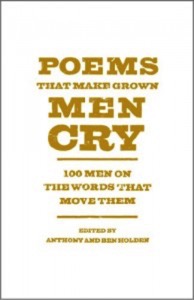
Being a grown man myself and discovering that age is making me more, not less, sentimental, I found this volume to be powerful. Perhaps that is the desired effect among sentimental old fools. If so, I’m just the audience the book seeks.
One comment that starts with a story. A decade or so ago, I met Robert Bly. He was in our city for a workshop that our church hosted. It was the day of men getting in touch with their feelings. There was drumming and other activity. My initial reaction, I must say, was not very positive. I found the man to be pompous and full of himself, and not very aware of the writings of others, even those in his field. I am a student of philosophy and enjoy a good philosophical discussion, but he wasn’t interested in anything except his own point of view. So, it seemed quite appropriate that out of 100 authors, only one chose his own work as a poem that moves him emotionally. You guessed it. That one exception was Robert Bly.
Had I been editing the book, I would have left that entry out and sought out one more writer.
But then, this review would have been shorter.
Dandelion Wine
21/12/14 16:31
Ray Bradbury, Dandelion Wine (New York: Bantam, 1976)
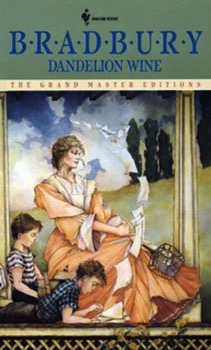
I guess I am just not in the same league with that literature professor. At least I didn’t have any sense that this was the greatest use of the language ever. And I didn’t emerge feeling that I had missed anything. I guess it is a sort of coming of age story. It is a description of a young boy’s summer of ’28. Bradbury is a good writer. And he does turn a good metaphor. But he is not a keen observer of culture. I can see why he made his fame in the field of science fiction. His regular fiction is certainly not rooted in the kind of experience that real people have.
You have to suspend all kinds of disbelief to connect with a young boy who has no sense of religious traditions and meanings. Who has to discover every fundamental truth about life and death without any sense of connection with previous generations and the great philosophies that have been shared from generation to generation.
He uses language well. He crafts elegant metaphors. And he creates characters who are unlike any people I have ever met.
The book did not plant in me any desire to read more Bradbury.
I guess I just don’t get it.
The Wisdom Jesus
20/12/14 10:45
Cynthia Bourgault, The Wisdom Jesus: Transforming Heart and Mind - a New Perspective on Christ and His Message (Boston: Shambhala, 2008)
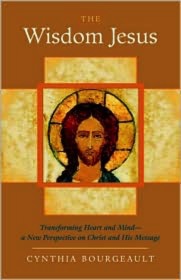
Many of the disciplines and approaches of which she speaks have long been present in the Western Church as well as in Eastern Orthodoxy. She seems to be more educated in Eastern practice than in that of some of the orders of Roman Catholicism, for example.
The third section of the book is a rather elementary introduction to spiritual practices that have been taught and passed down for centuries. My advice to those who have not yet read the book is to skip to that section first. If those practices are new to you and invite you into a deeper relationship with Jesus, then, by all means read the entire volume. It is a good introduction to a deeper faith. If you find very little that is new in those practices, chances are you won’t find too much that is new in the rest of the book.
This book would be a good book for spiritual practices groups or for spiritual direction and is good to have in the library of resources.
Empire of the Bay
20/12/14 10:32
Peter C. Newman: Empire of the Bay: The Company of Adventurers that Seized a Continent (Toronto: Madison Press Books, 1989; New York: Penguin, 1998)
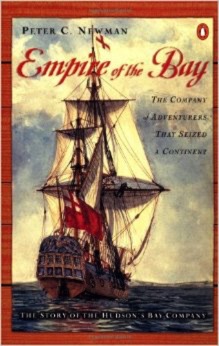
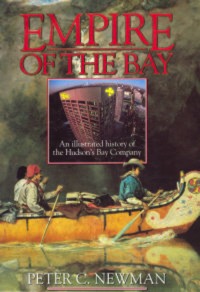
Although these books are by no means new, they remain good sources of information on the history of Canada and the story of The Hudson’s Bay Company.